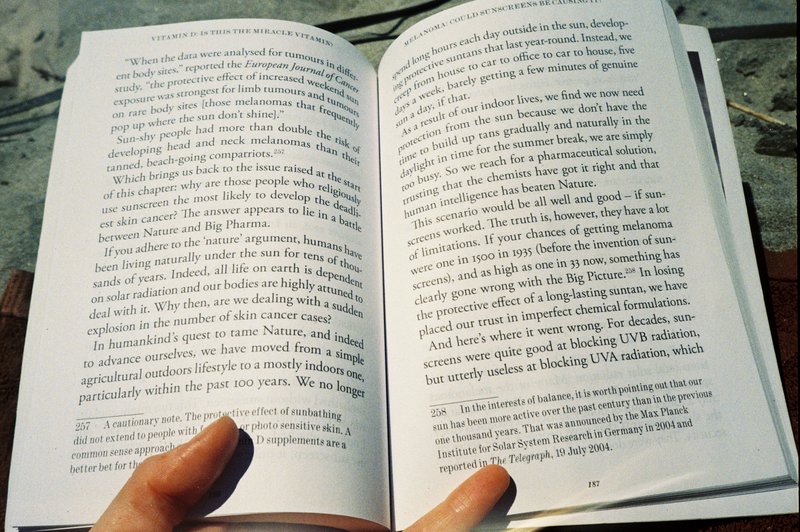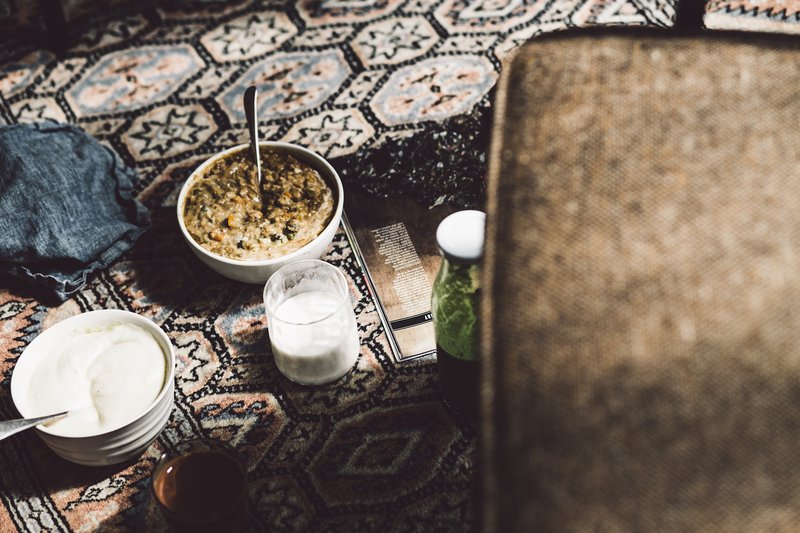“So much that we really don’t need,” the opening commentary from Max Keiser on Report 1526. If humanity is to move forward, we must use this opportunity to commit ourselves to a slower state, a return to the essential — ready to expand beyond lockdown. There are near-infinite amounts of resources remaining in our fragile ecosystem and we have been using too much of everything. So here we are sharing books that will challenge views on mainstream consumerism because while we have wanted to share our vision of sustainability, in part this comes with the understanding that sustainability is a cultural movement based on the way you consume.
Diet for a small planet: The Book That Started a Revolution in the Way Americans Eat — Frances Moore Lappé
Recommended by: Tracey
Why you’ll want to read it: Probably the most important book on nutrition and politics I have ever read. If you don't immediately see the relationship between the two, then read this book.
What stuck with me:
Available from:
— Amazon
— Kobo
Wait — Wilson Oryema
Recommended by: The Internet
Why you’ll want to read it: Wilson provides commentary on various types of consumption we engage with daily — and its implications. Wait aims to provide a more relatable understanding of consumption and its effects on the planet. Paired best with Curing Affluenza as required groundwork.
What stuck with me: Wait is expressed through short stories and poems providing an alternative format yet showing you exactly what you need to see.
Available from:
— Amazon
Curing Affluenza — Richard Denniss
Recommended by: Tracey
Why you’ll want to read it: If I am honest, I have an intellectual crush on Denniss. I've read all his contributing articles on the Guardian and his other works and thoughts I have found online. This piece is one of my favourites. What makes Curing Affluenza worth reading is that Denniss addresses culture — our consumerist ecosystem is largely influenced by culture. His book is not an attack on morality but instead explores economic theories and solutions towards tackling the issues of consumerism, capitalism and climate change. Curing Affluenza is a book about reshaping the context in which individual decisions are made if we are to reshape our economy.
What stuck with me: "The economy does not make those decisions, it responds to them to varying degrees. But inevitably, when enough people change enough of their decisions; change occurs."
Available from:
— Amazon
— Kobo
This Changes Everything: Capitalism vs. the Climate — Naomi Klein
Recommended by: The Internet
Why you’ll want to read it: This Changes Everything is, for the most part, focused on the corporate promotion of climate denial — identifying capitalism as the culprit in the climate crisis. Klein argues how conveniently the 2008 global financial crisis shifted focus away from the environmental movement — what we are seeing today as COVID- 19, though analysts predict global economic downturn could be especially deep and lengthy. And while Klein does not address culture, individual actions, or overpopulation, this book is urgent read for anyone wanting to understand the relationship between climate change and capitalism.
What stuck with me: “It is difficult to get a man to understand something when his salary depends upon his not understanding it!”
Available from:
— Amazon
— Kobo
Does It Matter?: Essays on Man's Relation to Materiality — Alan Watts
Recommended by: Tracey
Why you’ll want to read it: This one is in the post. Originally published in 1972, this selection of essays is Watt’s thinking on the astonishing issues caused by our dysfunctional relationship with the material environment — the disease of civilisation.
What stuck with me: “Instant coffee, for example, is a well–deserved punishment for being in a hurry to reach the future.”
Available from:
— Amazon
— Kobo
The Consumer Society: Myths and Structures (Published in association with Theory, Culture & Society) — Jean Baudrillard
Recommended by: The Internet
Why you’ll want to read it: Originally published circa 1970, Baudrillard argues that consumption has become a means of differentiation, not satisfaction. This book presents an organised discussion of mass media culture, the meaning of leisure and perspectives on the affluent, recognised today as 'consumer society.' Baudrillard was amongst the first to focus on the process and purpose of consumption in contemporary culture and various issues, associated with the consumer society — yet his works still provide vital contributions to current debates on consumption. The Consumer Society is for those interested in a deep dive into the theories of consumerism and the development of modern credit.
What stuck with me: “Advertising as a whole has no meaning, it applies only meanings.”
Available from:
— Amazon
— Kobo
How Much Is Enough?: Money and the Good Life — Robert Skidelsky and Edward Skidelsky
Recommended by: Tracey
Why you’ll want to read it: Either unconvincing or unconventional, this book argues that there is more to life than gross domestic product. Our country has one of the world’s highest household debt levels, at 93% of GDP — debt slaves worried about the mortgage. One pay packet away from defaulting on their car repayments. When the authors argue there ought to be able to do better than this, it is hard to disagree. Break with the past and imagine a world anew.
What stuck with me: Disaster capitalism has been all around us in the past few weeks, this book offers new perspectives on ‘growth at all costs’. A timely read.
Available from:
— Amazon
— Kobo
The Overspent American: Why We Want What We Don't Need — Juliet B. Schor
Recommended by: Tracey
Why you’ll want to read it: An analysis of consumer culture, this book explores similar themes to the above — why so many of us work long hours for the material to only feel materially dissatisfied. A read for those that during this challenging period are debt saturated with significant obligations and few resources.
What stuck with me: Addressing consumer culture, The Overspent American is a relatable read in that Western culture has in many ways adopted some version of the American Dream — a tangled web of debt finance.
Available from:
— Amazon
Who Really Feeds the World? The Failures of Agribusiness and the Promise of Agroecology — Vandana Shiva
Recommended by The Internet
Why you’ll want to read it Vandana Shiva is an icon of the international activism movement, and you might have seen her in documentaries such as The True Cost or Tomorrow. For over thirty years, she is leading the battles against agribusiness in India. She promotes agroecology as a real and respectful alternative for food production. And so her book “Who Really Feeds the World” powerfully states the reality of an industrial, agricultural system impregnated by patriarchy. Shiva demonstrates the consequences of this violent system on the economy, ecosystems, health, human rights—and shares the keys to end food poverty and reclaim our food sovereignty. Let’s get into this.
What stuck with me According to Max, an “Insightful book on how the food industry really works. Quite eye-opening and shocking. You’ll probably make the extra effort to buy local and organic food after reading it.”
Available from
— Amazon
— Kobo
A history of the world in seven cheap things — Raj Patel w/ Jason W.Moore
Recommended by The Internet
Why you’ll want to read it I came across this book researching a Christmas gift for my brother, who is interested in business and economics, and since then I have it on my list. According to readers, Patel and Moore’s book is a passionate historical analysis and contemporary guide. The goal is to understand the world we live in—and how capitalism, colonialism and neoliberalism are intertwined and shape our modern world. I love a lecture that gives an overview, a sense of the big picture so I will definitely immerse myself into this read.
What stuck with me On goodreads, Levent describes this book as powerful and “forces you to connect the dots between many seemingly unrelated issues in world history. Must read.”
Available from:
— Amazon
— Kobo
Wardrobe crisis — Clare Press
Recommended by Amandine
Why you’ll want to read it This book is a primer. Wardrobe Crisis is the bible we should all have in our shelves if we are interested in fashion or sustainability. Clare Press exploration of the fashion ecosystem, history and ethics is a fascinating and entertaining journey. I learned so much and built the roots of my critical thinking on fashion thanks to this fantastic reading. I believe anyone who wants to make any statement about this industry should have read this book prior. And the people on goodreads would probably agree with me.
What stuck with me Discovering how everything is interconnected. Did you know Ralph Lauren and Calvin Klein were neighbourhood?!
Available from:
— Amazon
— Kobo
small is beautiful — RF Schumacher
Recommended by Tracey
Why you’ll want to read it "In many places in the world today, the poor are getting poorer while the rich are getting richer". Schumacher articulated truths that are perhaps more relevant today than when the book was first published in 1973, highlighting how industrial enterprise is not conducive to public welfare. Schumacher suggests our substance will not be measured by Gross National Product but rather by symptoms of loss—loss of access to adequate housing, healthcare and education in a context of large-scale psychological trauma. This TIME article, "The Top 1% of Americans Have Taken $50 Trillion From the Bottom 90%—And That's Made the U.S. Less Secure", provides a sobering outlook on the economic reality of the majority. And regarding globalisation, Schumaker asks "how much further 'growth' will be possible, since infinite growth in a finite environment is an obvious impossibility". "small is beautiful" was a radical challenge to the 20th century's intoxication with what Schumacher described as "gigantism" and questions raised about sustainability are highly relevant today in our current climate context, and still don't get discussed.
What stuck with me "As regards to private property, the first and most basic distinction is between (a) property that is an aid to creative work and (b) property that is an alternative to it. There is something natural and healthy about the former—the private property of the working proprietor; and there is something unnatural and unhealthy about the latter—the private property of the passive owner who lives parasitically on the work of others".
Available from:
— Amazon
Everything we create is an effort to participate in a culture shift. All products featured are independently selected and curated by the authors, and we only feature items we use or would use ourselves that align with our values. As part of our business model, we do work with affiliates such as Amazon. As an Amazon Associate, we earn from qualifying purchases if you decide to purchase through our links. The price would be the same to you either way, but if you find value in our work, then these affiliate links are a way to support it. We only recommend brands, makers and products we use — that we support. Transparency is important to us, so if you have any questions, please reach out to us.



